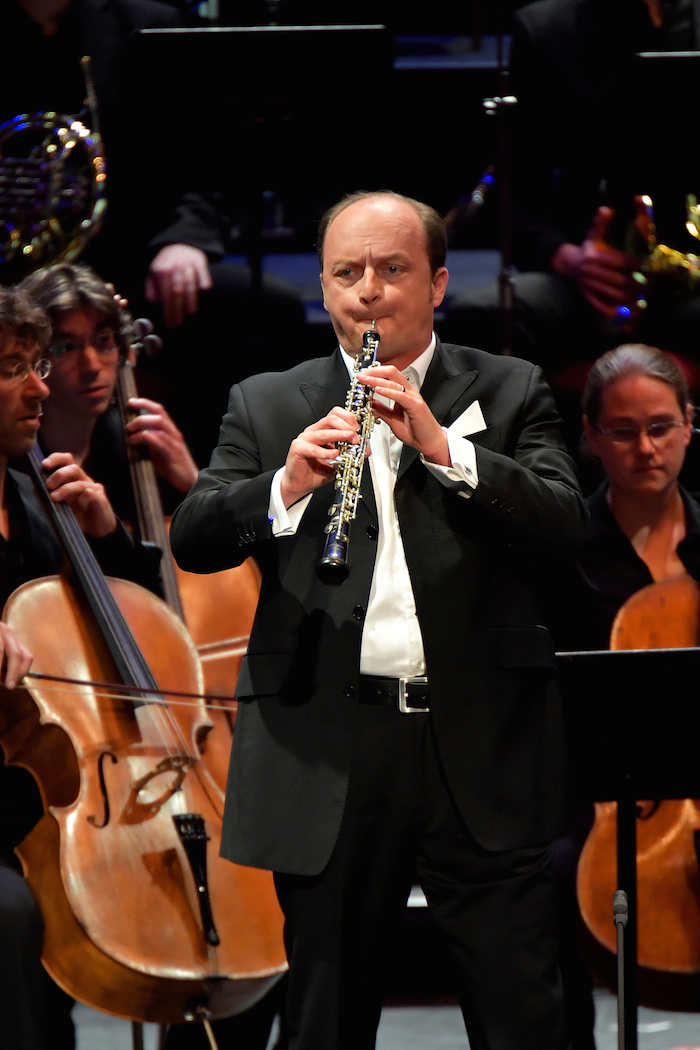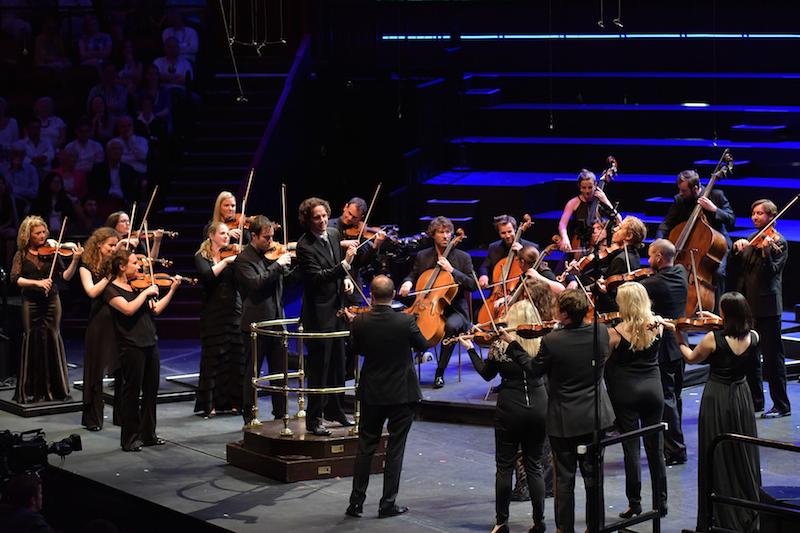The Aurora Orchestra’s gimmick at Prom 21 was the same as in the last two seasons: playing a major classical symphony from memory. This was touted as an “astonishing feat” by the concert’s on-stage presenter Tom Service but, although unusual, is it really that extraordinary? When I go to the opera I am not moved to congratulate the singers on performing without music. In fact, the lingering on what should be an incidental feature was in danger of obscuring a more interesting point: the excellence of the orchestra’s actual playing.
In terms of difficulty, Mozart’s Symphony No 41 was less of a memory challenge than Beethoven’s 6th last year, with its many and unpredictable repetitions. The Mozart is also more like chamber music, with all the parts feeling complete and logical in themselves, and I was made freshly aware of the myriad ingenious interactions between the inner voices. The fact that the players stood (except the cellos) also seemed to bring life to their playing, which was vigorous and energetic throughout.
The performance of the symphony itself was preceded by conductor Nicholas Collon and Tom Service (“astonishingly” managing entirely without notes) unpicking the last movement with the help of live excerpts from the players. This introduction was slightly overlong, but the finale is a tour de force so tightly packed that isolating the elements was good preparation for hearing the piece. That said, I might have preferred to hear another piece entirely instead.
It made me wish Mozart symphonies were heard more often at the Proms
There was much to enjoy about the symphony. Aurora played with the sensibility of a period band, if only some of the actual instruments (the decision to use natural trumpets but valve horns was difficult to fathom). The tempos were brisk, especially in the madcap finale. The string vibrato was restrained. The shaping of the phrases – especially in the Andante – were pleasingly vocal.
As well as these general points, there were notable details about Collon’s interpretation. He found dynamic lows as well as the inevitable highs, and often held back the ostensible main melody to let an inner part come through. Both the principal bassoon (Rie Koyama) and principal oboe (Thomas Barber) were encouraged to shine, playing with character and wit.
I was left wondering whether, if I had heard the performance on the radio without knowing the circumstances, I would have noticed a particular quality in the playing? It was certainly a Rolls-Royce performance of an extraordinary piece, and made me wish Mozart symphonies were heard more often at the Proms (this is the only one this year).

The virtuosic duet (between violinists Alexandra Wood and Jamie Campbell) gradually expanded to involve the whole ensemble. It was skittish and energetic, and masterfully held together by Collon, even if some of the detail was lost in the cavernous acoustic.
In between came Strauss’s Oboe Concerto, played by François Leleux (pictured above right). In his (again overlong) spoken introduction, Leleux described the piece as “a big message of hope” but to me it sounded like a big wallowing in nostalgia. Written at the end of his long life, when Strauss was past 80, it looks back to a time long past at a moment when Pierre Boulez and his cohorts were smashing away at the traditions of music.
But neither late Strauss nor early Boulez seem quite the thing any more. The concerto is lyrical and warm, Leleux’s playing extremely accomplished and stunningly beautiful in sound. Collon caught the rubato just right, particularly in the slow second movement. But for all that, it felt “safe” in a way that the Rihm, and especially the Mozart, did not.














Add comment